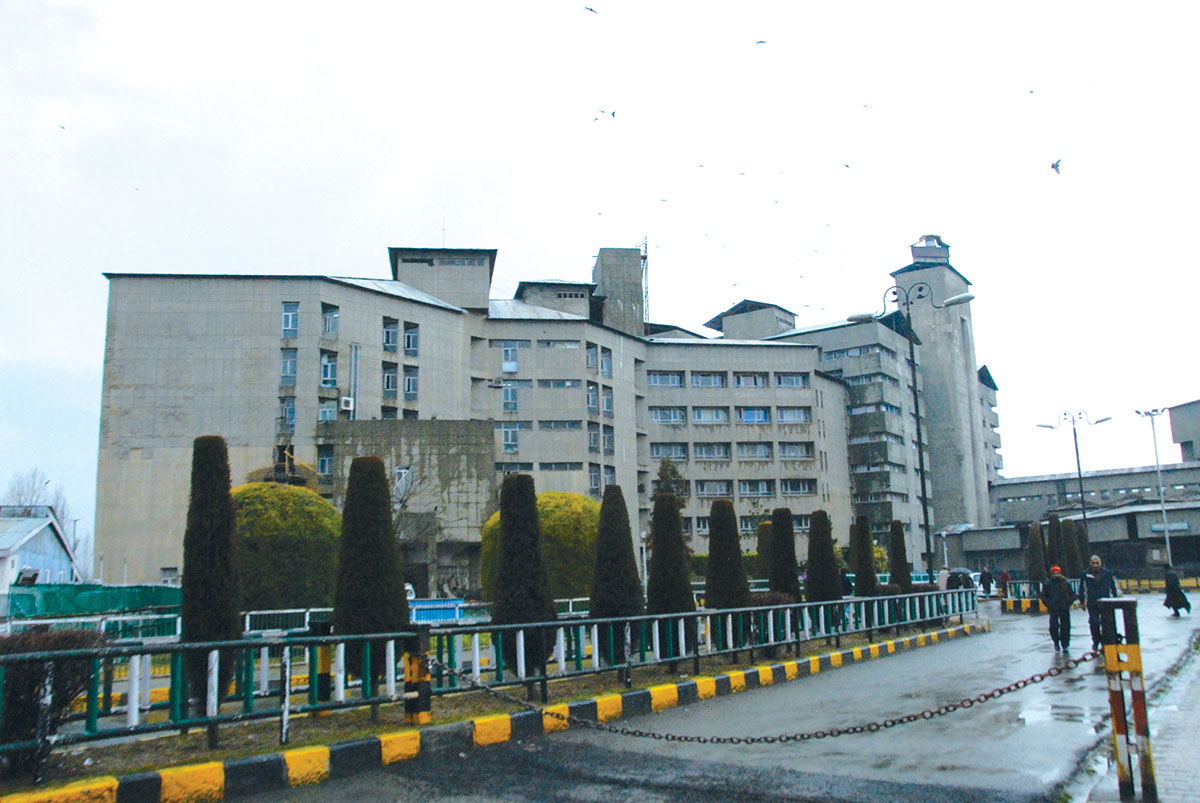by Javaid Iqbal
In his Pulitzer prize-winning book about cancer, Siddhartha Mukherjee called it The Emperor of All Maladies. Cancer is one of the oldest diseases known to man. The earliest surviving description of cancer was written on a papyrus from about 1600 BC. Hence the name perfectly depicts its impact on human society.

There never was a pleasant time to get cancer. However, Covid-19 has made it infinitely more complicated. Getting diagnosed with cancer is an unfortunate life event in the life of the person and their family. A pandemic like Covid-19 is a once in a century event for which no amount of planning can help completely overcome the hindrances to optimum health care delivery.
According to recent research from China, published in The Lancet Oncology, people with cancer have more than threefold the risk for serious health events in case they develop Covid-19 owing to their low immunity. Another report of Cancer Care Delivery Challenges Amidst Coronavirus Disease outbreak published in the Asian Pacific Journal of Cancer Prevention stated how cancer patients are more susceptible to Coronavirus as they are in an ‘immunosuppressive state because of the malignancy and anticancer treatment.’
Cancer is sweeping through India, accentuating a healthcare system already overwhelmed by some world’s sickest people. The country is home to 17% of the global population but suffers from 21% of the disease burden. The depressing reality in India is that most cancer cases get diagnosed in advanced stages, and two-thirds of patients die because of the disease. Unequal healthcare distribution hinders early detection and treatment options.
Comprehensive modelling research on the impact of the Covid-19 pandemic on surgeries projected that 59·7% of cancer surgeries were deferred in India during the peak of 12 weeks of disruption, translating to 51100 postponed cancer surgeries. Due to delayed surgeries, tumours might be upstaged and reaching the operation table later than they would normally have. Cancer treatments such as surgery, chemotherapy, and radiation therapy are typically time-sensitive and must be given promptly, in clinical settings, to stop the spread of cancer. Patients with lung cancer and metastatic disease progress fast, and if we miss the opportunity to treat their disease, patients might survive for just a few months rather than years.
The economic fallout of Covid-19 will also have an upsetting effect on cancer patients. Studies have demonstrated that expenditure on cancer inpatient treatment is highest in India, with out-of-pocket spending on cancer hospitalization about 2.5 times of overall average hospitalization cost. Many people, unfortunately, resort to distressed means for treatment financing, such as the sale of household assets. The income and job losses following Coronavirus containment measures worldwide are playing out in India. In the absence of financial relief schemes, cancer patients and their families will be left with fewer resources to pay for treatment.

Out-of-pocket (OOP) health expenses drove 55 million Indians – more than the population of South Korea and Spain, into poverty. Of these, 38 million (69%) get impoverished by expenditure on medicines alone. In India, outpatient care is the most significant contributor to OOP spending. In cancer care, 50% of patients pay out of pocket for treatment. A substantial part of the cancer patient’s expenses are medicines. When adjusted for cost-of-living cancer drugs are least affordable in India and adding to the cost of drugs is the inefficient supply chain where a drug needs to go through a combination of central warehouses, clearing and forwarding agents, distributors, wholesalers, pharmacies, and hospitals, before reaching the patient. 7% of Indians fall below the poverty line because of indebtedness owing to health expenses. This figure has not changed in a decade. With thousands of poor city migrants whose livelihoods have collapsed because of Coronavirus measures heading back to villages, these numbers will increase.
Most Government-run facilities are in big cities; people from rural areas often travel long distances for treatment and follow-up. 70% of cancer care facilities are located in urban areas, while 75% of the population suffering from different cancers live in rural areas. Many hospitals and private clinics have had to shut outpatient units following Covid-19 outbreaks among staff. Due to travel restrictions, Cancer patients will face problems in travelling to these urban centres. Even patients who are already on chemotherapy cannot delay their scheduled chemo cycles as the risk of disease progression is too high compared to the risk of contracting the COVID infection.

There is little doubt that patients are experiencing a delay in cancer diagnosis; to what degree this will impact outcomes is unclear. We know that when patients don’t undergo cancer screening, they present with later-stage cancers and are more likely to die of their disease. How long it will take to get past these delays in detection is also unclear.
As many as 40% of cancer patients do not have a Smartphone or access to a computer at home, limiting the telehealth visit, including the inability to have a meaningful physical exam or check routine labs.
We are unlikely to see a Covid-19-free world soon, and data suggests that Covid-19 will peak in India by ending July, and by that time, most of the beds in hospitals will be occupied by Covid-19 patients. Covid-19 will stretch already stressed health care resources in India. Most oncologists see cancer incidences to increase by about 25 per cent in the next five years.
The future of cancer patients looks bleak in India.
(The author is a Global fellow at Brandeis University USA. The opinions expressed in this article are those of the author’s and do not purport to reflect the opinions or views of Kashmir Life.)















